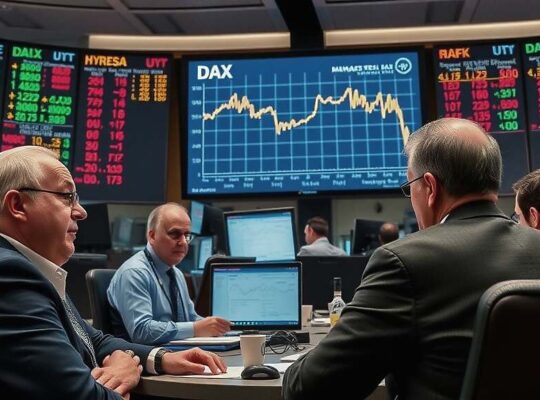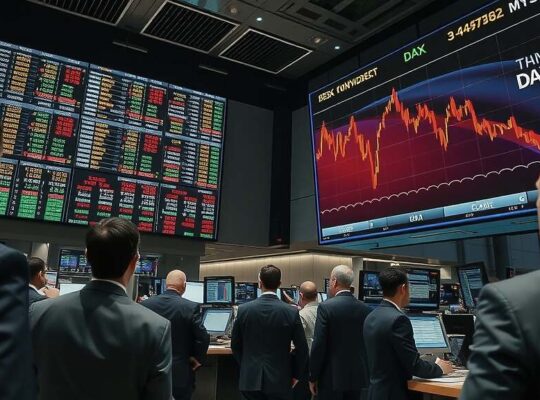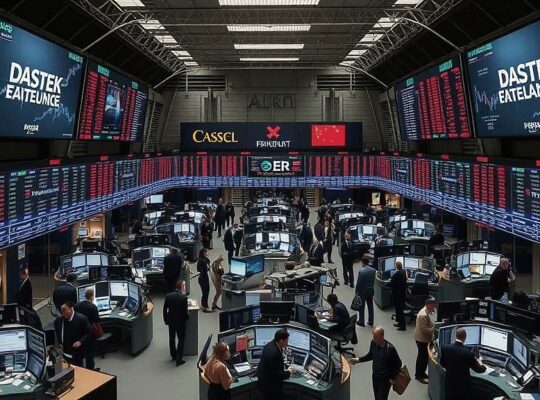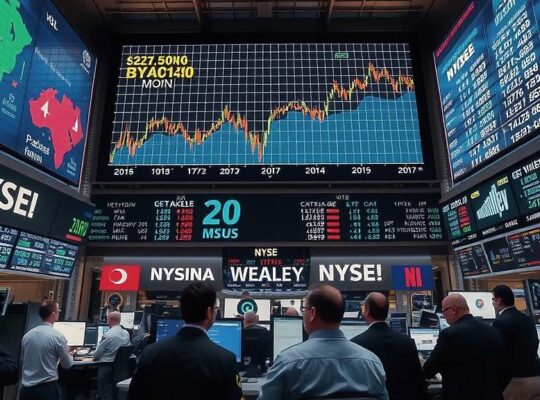Market jitters and geopolitical uncertainties weighed on German equities Wednesday, with the DAX index experiencing a slight decline despite an initially tentative positive start. The index closed at 24,181 points, representing a 0.2% decrease from the previous day’s close. This modest downturn underscores a growing sense of caution amongst investors as the earnings season begins and macroeconomic signals remain muted.
According to market analyst Andreas Lipkow, the lack of fresh economic data is amplifying the influence of trading activity, highlighting the fragility of investor sentiment. He pointed to the record-breaking prices of precious metals – particularly gold and silver – as a concrete manifestation of this market uncertainty. This surge in safe-haven assets suggests a pervasive anxiety about potential risks to the global economy.
A key contributor to this unease is the ongoing tension between the United States and China. Lipkow observed a profound disagreement amongst investors regarding the possibility of an escalation in trade conflict. He warned that given the already elevated valuations across many sectors in the U.S., a significant market correction could easily impact the performance of German blue-chip stocks. This points to a potential vulnerability within the German economy, reliant as it is on the health of both the U.S. and Chinese markets.
The day’s trading saw BASF, Brenntag and Beiersdorf lead the Frankfurt exchange, while Rheinmetall lagged behind. However, broader trends dominate the narrative. Declining energy prices provided a slight counterpoint to the overall negativity. Natural gas prices fell to €32 per megawatt-hour for delivery in November, representing a 1% decrease, potentially translating to consumer electricity prices of at least 8-9 cents per kilowatt-hour if sustained. Simultaneously, Brent crude oil dipped to $62.04 per barrel. The euro strengthened slightly to $1.1635, indicating a modest recovery against the dollar.
The relatively muted reaction in the DAX, despite these concurrent economic developments, suggests that underlying anxieties surrounding geopolitical risk and potential for a downturn in the U.S. market continue to exert a significant influence on investor behavior and could portend a period of increased volatility. The reliance on external economic forces highlights a persistent vulnerability in the German economy, emphasizing the need for robust domestic strategies to mitigate future shocks.












